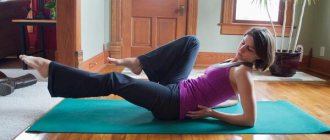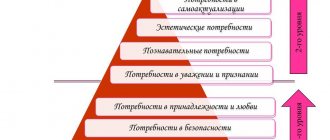10th city clinic
“The habit of going to bed early and rising early makes a man healthy, wealthy and wise.” Ben Franklin
A high pace of life is an integral feature of the modern world. To get everything done, many sacrifice their sleep. It would seem that invigorating coffee in the morning can eliminate the feeling of lack of sleep, but lack of sleep tends to accumulate. Subsequently, shortening sleep time may result in loss of concentration, nervous tension, chronic fatigue syndrome and many other health problems.
To avoid diseases, it is necessary to follow the rules of proper sleep.
The undoubted benefit of sleep lies in the ability to effectively restore strength and draw the necessary reserves for daytime activities. Calm, high-quality sleep allows you to restore cells of the central nervous system, is a powerful prevention of many diseases, and strengthens the immune system.
Sleep is also of particular importance for a person’s mental health. In particular, it is during sleep that our brain integrates memories, linking them with facts and skills acquired through learning. All of these cognitive processes significantly improve memory, which suggests that the night before an important presentation or exam you really should get enough sleep—the opposite can be counterproductive.
Rules for healthy sleep.
There are a number of rules that, if followed, will make sleep extremely beneficial for your health. These rules help the body correctly perform its functions during sleep, which certainly has a beneficial effect on well-being and mood during the waking period.
- Stick to a routine.
Try to go to bed and wake up at the same time, regardless of the day of the week. Even on the weekend, when you might spend a few extra hours in bed, get up according to your daily schedule.
The daily routine should include the whole day, from waking up to going to bed. If you see that some things were not completed by the allotted bedtime, then put them aside. Over time, everything will fall into the right rhythm, and all unnecessary things will be eliminated by themselves;
- Create comfortable sleeping conditions (light, fresh air, temperature).
It is better to fall asleep in complete darkness. However, curtain the windows so that in the morning, when it begins to get light, our senses can catch the light and perceive it as a signal that we will get up soon. When light hits the retina of the eyes, the production of melatonin in the body decreases and the blood begins to release the hormone of vigor - cortisol, which helps to cheer up and recover from sleep faster;
Fresh air in the bedroom is the key to healthy and sound sleep. During sleep, the brain continues to work, process information, and restore performance. Therefore, before going to bed, it is necessary to ventilate the room (optimal temperature 18-21C);
- Try to use your sleeping area only for sleeping and relaxing. Avoid turning your sleeping area into a “study”;
- Put away your gadgets until the morning. Putting your phone down 30-60 minutes before bed will help you fall asleep easier. The fact is that when you play, watch videos, communicate on social networks, you stimulate your brain. You become engrossed in the process, which can make it difficult to put down your phone and go to bed. Watching TV won't help you sleep either. Avoid any devices with a screen in the last half hour to an hour before bed;
- Avoid taking stimulating drinks (coffee, strong tea or other tonic drinks) five to six hours before bedtime;
- How much sleep do you need?
For proper rest and restoration of the body, an adult needs at least 8 hours of sleep.
Sleep is a cyclical process, where each cycle consists of alternating phases of rapid and slow sleep (the duration of one cycle is 1.5 hours). If you wake up in the middle of your cycle, you will still feel tired and sleep-deprived, even if you slept for about 6 hours. The best time to start sleeping is from 10 pm to 2 am. With the onset of darkness, the human body produces melatonin, the sleep hormone.
Deficiency of the hormone melatonin leads to premature aging of the body.
It has been proven that melatonin , in addition to regulating the rhythms of the body, has ... This is due to its ability to easily penetrate cell membranes and neutralize the destructive effects of free radicals.
Experts say that you can increase your melatonin content with foods containing the amino acid tryptophan . Nuts, legumes, rice, oats, barley, cherries, banana, dairy products. Vitamins B3 and B6 increase the presence of melatonin.
Strong coffee, tea, nicotine and alcohol increase melatonin deficiency. Protein foods, due to the presence of a large number of amino acids, act as a competitor to tryptophan, reducing its production.
For high-quality production of natural melatonin, it is recommended to go to bed no later than 22 hours. The room for sleeping should exclude light, you need to sleep in absolute darkness, you can use a special eye mask. If you have to stay awake at night, it is advisable to use dim lights.
Interestingly, a long sleep of 10 hours or more is no longer as beneficial as a standard one. Scientists have found that such sleep increases the risks associated with the cardiovascular system, impairs concentration and provokes inflammatory processes in the body.
Maintaining a daily routine is a leading factor in good metabolism, energy and human health.
The correct position during sleep affects your well-being and quality.
When you go to bed, make a conscious effort to follow these guidelines until they become a habit:
- The most correct sleeping position is on your back. It is in this position that all muscles relax, blood flows freely to the brain, and there is an even load on the heart. Doctors advise people with scoliosis to sleep on their backs: this is how the mattress supports the spine. Your face does not touch the pillow throughout the night, which will prevent the appearance of unnecessary facial wrinkles. However, sleeping on your back is not recommended for those who have breathing problems or snoring, or for pregnant women. And for those who like to sleep on their back, it is not advisable to use a pillow that is too high, as it makes breathing difficult;
- Side sleeping also works for most people. When we lie on our side, the spine maintains its natural curve and the back relaxes. Nevertheless, you should pay attention to which side you sleep on: sleeping on the right side can provoke heartburn, and on the left it can put additional stress on the heart in hypertensive patients. It is not recommended to place your arms under the pillow, as this impairs blood circulation;
- Sleeping on your stomach is considered the most harmful. By lying on our stomach, we violate the correct position of the head during sleep - we turn it to one side, which disrupts the blood supply to the brain. The load on the joints and muscles, and especially on the chest, increases, which makes breathing difficult. Lying on your stomach straightens the natural curve of the spine, and this can lead to back pain. If you are a fan of this pose, place a small pillow under your hips and lower abdomen. This way you can restore the position of the spine.
- The mattress must be replaced every 7-8 years. The thing is that over time, mattresses become deformed.
Proper nutrition is the key to health and, accordingly, another rule of good sleep:
- Have dinner no later than 3-4 hours before bedtime. Eating late—especially large—meals increases blood flow to your digestive tract, causing your stomach to secrete more stomach acid and your pancreas and intestinal muscles to work harder, so your body can't get enough rest overnight.
What to eat before bed?
Give preference to low-calorie foods: turkey, eggs, legumes, bananas, yogurt or low-fat cottage cheese, kefir, a handful of walnuts, almonds.
- Avoid drinking alcohol before bed as a sleep aid. Due to dehydration and ethanol breakdown, sleep quality will be low, sleep will be interrupted and the brain will not be able to rest during this time.
It is better to drink a mug of warm milk with honey (provided you are not allergic). Milk contains tryptophan, protein and calcium. This drink has a warming and calming effect.
- A great option for physical activity is walking before bed.
How to wake up early and in a good mood?
After a period of adaptation to early rises, your well-being and mood improve significantly. Life becomes calmer, more measured, the stress associated with the fact that there is always not enough time for important things disappears.
Getting up in the morning will help you concentrate faster; it is at an early time that the brain absorbs information better, and it is easier for people to concentrate
The morning should be pleasant: take a shower, do exercises, a delicious breakfast, your favorite coffee or tea, an interesting book will help you get ready for the new day.
Consequences of lack of sleep.
- Deterioration of cognitive functions (memory, attention, thinking), coordination, speech, orientation, control and others. This often leads to accidents at work and on the road. According to statistics, every fifth accident occurs because the driver fell asleep at the wheel;
- Vulnerability of the immune system. Research shows that lack of sleep increases your risk of getting sick by three times. During sleep, the immune system synthesizes cytokine proteins. The more infections there are, the more of them are required;
- Overeating and excess weight. Lack of sleep stimulates the production of ghrelin, the hunger hormone. As a result, the person overeats;
- Decrease in productivity;
- Lack of sleep is a serious obstacle to the formation of healthy habits. But it is an excellent catalyst for harmful ones: when there is a lack of sleep, a person seeks external stimulants (nicotine, caffeine, etc.).
Remember that healthy and high-quality sleep is the kind of sleep from which a person wakes up feeling rested and ready for good physical and mental functioning.
What is sleep
One of the important physiological states of a person is sleep. The need to sleep arises regularly. After all, at this time the human body is in relative peace, while sensitivity to external influences is significantly reduced compared to the period of wakefulness.
A person looks like a machine put into “sleep mode”, as he is:
- in a stereotypical pose;
- with a minimum of physical activity;
- with a reduced reaction to external stimuli.
The higher parts of the nervous system are responsible for the physiology of sleep. The nerve cells of the cerebral cortex are capable of responding to the slightest irritation coming from the external environment and forming inside a person. They are constantly on guard, sending signals to human organs and muscles. Such reactivity leads to gradual fatigue and inhibition of their activities. That's why people sleep.
And when a person has worked during the day, is tired or has suffered from illness, then in the evening his eyes are irresistibly closed. If at this moment the activity of only the cerebral cortex is inhibited, then sleep is not sound. Having descended to the lower parts of the brain, inhibition leads to deep sleep. It is known why a person falls asleep to the ticking of a clock, the clatter of train wheels, or monotonous speech. In these cases, inhibition prevails over excitation, and sleep comes.
Those who sleep well consume fewer calories
Studies have shown that people try to compensate for lack of sleep with calories and therefore their appetite increases.
Sleep deprivation affects hormonal levels - in particular, as identified by the US National Institutes of Health, appetite hormones. The peptide hormone ghrelin increases, causing hunger, while leptin, which suppresses hunger, decreases. In fact, you don't want to eat, you just didn't get enough sleep.
It follows: Lack of sleep affects appetite hormones. Those who get enough sleep consume fewer calories than those who get little sleep.
Sleep influences sugar metabolism and risk of type 2 diabetes
Experiments were conducted, which revealed that sleep restriction affects blood sugar levels and reduces insulin sensitivity. Young healthy men were subjected to sleep deprivation: for 6 days in a row they could sleep only 4 hours. This caused symptoms of prediabetes. After returning to normal sleep duration, these symptoms disappeared within a week.
Poor sleep habits affect blood sugar levels in the general population. Those who sleep less than 6 hours a night have an increased risk of developing type 2 diabetes.
Abstract: Lack of sleep can cause prediabetes in healthy adults in as little as 6 days. Many studies show a strong connection between short sleep and type 2 diabetes.
Sleep quality and artificial lighting
Up to 33% of the population sleeps less than 6.5 hours, and 100 years ago the norm was to sleep 9 hours. The biggest contributor to our collective sleep problems comes from artificial lighting, TVs, computers and smartphones that emit blue wavelengths.
Circadian rhythms are built into the brain, but require signals from the external environment to synchronize. The most important signals are daylight and darkness.
Getting blue light from the sun is very important during the day. This improves attention and concentration, productivity, and improves mood (). But when it gets dark, a part of the brain called the pineal gland produces the hormone melatonin. It signals that it is time to sleep. Blue light, whether from the sun or a laptop, is a very effective blocker of melatonin production (, ) and disrupts the brain's natural sleep-wake cycles (, , ).
Many studies show that suppression of melatonin in the evening is associated with health problems such as metabolic syndrome, obesity, some forms of cancer, and depression (, , , ).
However, lighting and electronic devices are an important part of the modern lifestyle and they are not going away. Therefore, there are different ways to deceive the brain.
For example, there are glasses that block the blue rays of monitors, allowing the brain to produce the same amount of melatonin as if it were dark (, ,).
Another option for combating blue rays is programs that are installed on laptops and smartphones and, synchronizing with the time zone, turn the screen yellow as evening and night progress, blocking blue light. One of the most popular programs is F.lux.
Sleep phases
Sleep is divided into two types, each with its own physiological, neurological and psychological characteristics and tasks.
These are “fast” sleep (REM - from rapid eye movement) and “slow” sleep (N-REM - from non-rapid eye movement). The latter is divided into 4 phases. Thus, one complete sleep cycle consists of five phases:
- Slow sleep. The first phase is falling asleep, a borderline state. This is where a start in sleep occurs, when a person feels like he is falling. There are many theories why this happens. According to one of them, if you fall into sleep too quickly, the brain believes that the body is dying and triggers an electrical discharge like defibrillation. Another theory believes that this is the brain's way of waking up a person one last time to check that he has taken all safety precautions at night. Another theory believes that these are echoes of the times when people's ancestors slept in trees: with a strong sharp relaxation of the muscles, the brain thinks that the body is falling and wakes it up.
- Slow sleep. The second phase is full sleep. The muscles relax even more, and awareness of the outside world completely disappears.
- Slow sleep. The third and fourth phases - the sleeper is completely cut off from the world and does not respond to any stimuli. Neural activity, body temperature, respiratory rate, heart rate and blood pressure are all at their lowest levels. Nightmares, sleepwalking, and talking in your sleep usually happen here. Information processing and memory consolidation also occur in this phase. It is very difficult to wake a person, and if he is awakened, he feels sleepy and overwhelmed. In recent years, special alarm clocks have appeared that track sleep phases and wake a person during the period of “rapid” sleep, when it is easy to wake up. There are also applications for smartphones - you can search for sleep cycle alarm app.
- REM sleep (fifth phase) is a phase of sleep with rapid eye movement under the eyelids. It is still not known exactly what this is for, but it is believed that it is related to dreams. Brain activity at this time is high and often higher than in a state of wakefulness and working on a complex problem, but at the same time the muscles are relaxed as much as possible. This is where most of the vivid, memorable dreams take place. It is believed that the muscle atonia that accompanies this phase may be built into a measure of protection against self-harm, when a person can physically “turn on” their dream and begin to act it out in reality.
These five phases make up one complete sleep cycle, which takes 100-120 minutes, in this order:
In the first half of the night, “slow” sleep is longer in each cycle, and in the second half there is a shift towards “fast” sleep. At the end of each cycle, micro-awakenings occur for a few seconds, but the sleeper usually does not remember them, although it is possible to wake up completely at this time.
Each stage of sleep performs a distinct physiological and neurological function necessary to maintain health, repair and renew tissues, nerve cells, neutralize neurotoxins and restore normal levels of chemicals. Wound healing accelerates during sleep, and sleep also strengthens the immune system in general.
Thus, during the REM sleep phase, the brain is repaired and restored, and in the slow sleep phase, the body and its structures are repaired and restored.
If sleep is interrupted, if some phases are missing, a person may feel tired and weak. If a certain number of complete cycles are not achieved over several nights, growth hormone production is reduced and physical and mental recovery is impaired.
Those who sleep little have a higher risk of heart disease and stroke
The quality and duration of sleep can have a significant impact on many health risk factors. In particular, those that contribute to the development of chronic diseases, including cardiovascular diseases.
A review of 15 medical studies found that those who don't sleep enough are at greater risk for heart disease than those who sleep 7-8 hours a night.
Consequently: If you sleep less than 7-8 hours a day, then there is a high risk of developing cardiovascular diseases, as well as stroke.










